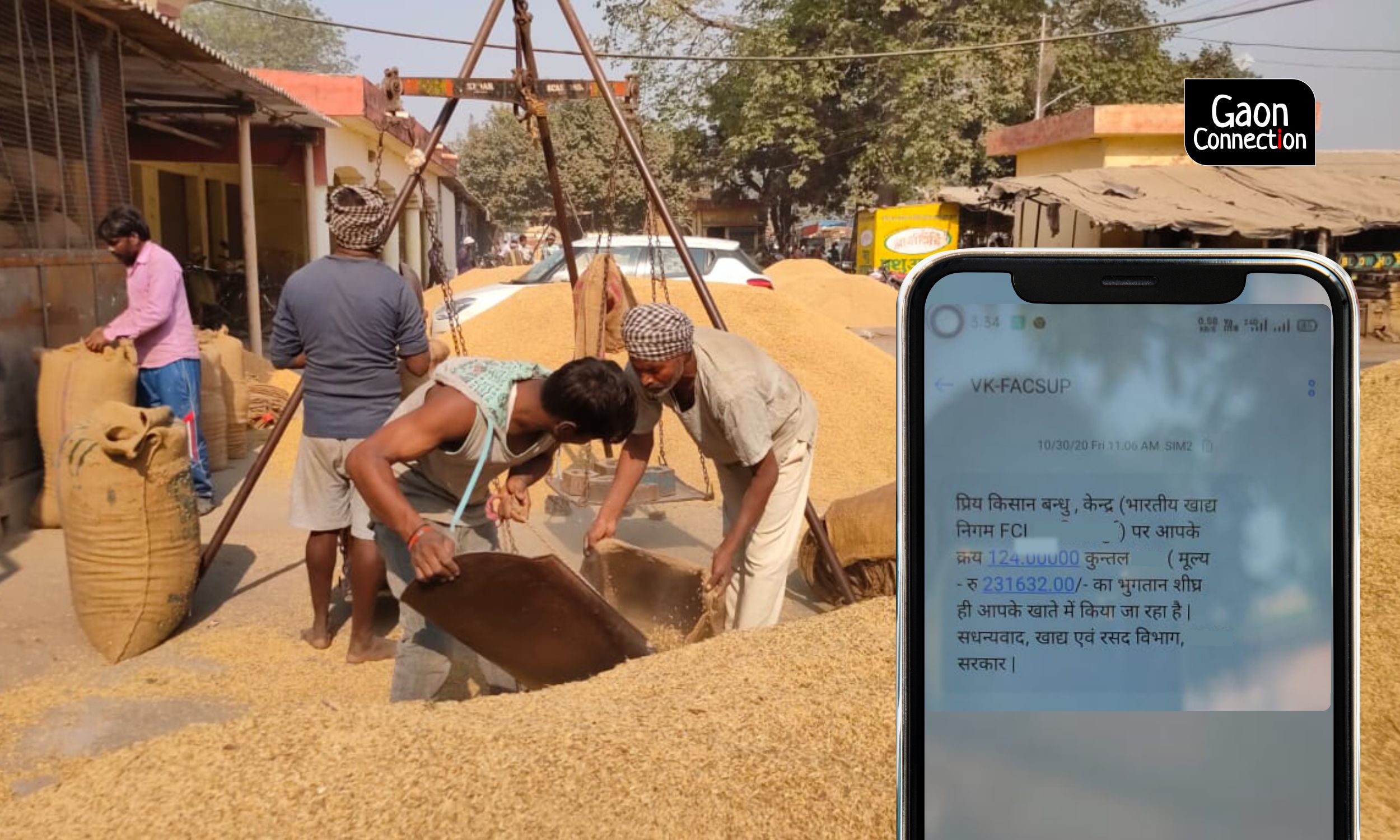The government procurement of wheat at MSP (minimum support price) will commence from April across several states. This time, the Food Corporation of India (FCI), plans to pay the MSP to the Punjab and Haryana farmers, directly into their accounts. This system has been followed in Uttar Pradesh, Odisha and other states, including Haryana where it is in the process of being implemented, but Punjab has been resisting it. But the government has declared now that Punjab too shall fall in line with this form of payment.
FCI has accordingly issued an order to this effect to the food civil supplies and consumer affairs department in Punjab. However, the aadhatis (commission agents) of Punjab are unhappy about this move that they say is impractical. They are considering moving the court in protest.
On February 18, at a presentation on reforms and budget at the ministerial office, in Delhi, the Union ministry of consumer affairs, food and public distribution, stated that henceforth, Punjab and Haryana governments will pay the MSP for their procurement, directly into the farmers’ accounts. In his statement, Piyush Goyal, Union minister of consumer affairs, food and public distribution, talked about making online transfers mandatory for both the states.
Also Read: MSP Mandate: Three in five farmers want the minimum support price to be legally binding
The government believed that this would bring transparency into the payment processes. However, the commission agents at the mandis in Punjab and Haryana see this as a ploy to wipe them off the market. Many Punjab farmers are also opposing the government’s decision.
There are 32,000 commission agents registered for procurement of wheat in Punjab, and 28,000 are registered for paddy. These agents procure paddy, wheat, cotton, basmati, bajra, maize, etc. Punjab has 1,850 large mandis, out of which 152 are grain markets.
“In accordance with the Agricultural Produce Market Committee (APMC) Act of Punjab, 2020, the commission agents continue to transfer money online to the farmers,” Ravinder Singh Cheema, president of the Punjab Aadhatiya Sangh told Gaon Connection. “What is the need for a new system when we already do online payments,” Cheema demanded to know.
“Procurement of crops is carried out in accordance with state government laws. Every state has its own system. The Centre has no right to impose any such condition,” he said. Cheema also pointed out that the government was demanding land records (Khasra-Khatauni) from farmers for the procurement. “In Punjab, thirty per cent of the cultivation is either on sharecropping or on contract basis and therefore it would be impossible for the farmers to produce any land ownership document,” he said. These rules are not practical for Punjab, and if need be the aadhatiyas would go to court to prevent this, he stated.
The farmers of Punjab are largely dependent on the commission agents, reiterated an official directly associated with the procurement system in Punjab, on conditions of anonymity. “The agents supply the much-needed money to the farmers all year around. They advance loans to the farmers and the relationship runs on mutual consent,” he explained.
“Commission agents are our day-night ATMs,” Kulwant Singh, a farmer from Raike Kalan village, Bathinda district in Punjab, told Gaon Connection. “Recently, people from the society [agricultural co-operative societies from where farmers get fertilisers, seeds, etc] approached me with a form where I had to declare that I am willing to take the payment directly from the government. But I refused,” said the farmer who cultivates wheat in 16 acres (6.4 hectares) of land.
The Central government’s department of consumer affairs clarified in a statement on February 18: “The government has no intention to remove the commission agents in Punjab and Haryana and no direction has been issued to abolish them from the mandi system. Direct payment will not affect the agents’ commission or mandi fee. It only strengthens the system of payment in more transparent ways,” it stated.
Also Read: Battle for MSP: Punjab and Haryana’s farmers fear their robust mandi system will collapse
This year (2021-22), the central government has estimated it will procure 42.74 million metric tonnes (427.363 lakh metric tonnes) of wheat at MSP. Of this, 13 million metric tonnes is estimated to be from Punjab and 8 million metric tonnes from Haryana. Nearly a sum of Rs 240,000 million as MSP payment for wheat will be paid into farmers’ accounts in Punjab. The procurement this year is 9.56 per cent higher than the 39 million metric tonnes in the previous year (2020-21).
Not a new process
The online transfer process was initiated as far back as 2012 by the United Progressive Alliance (UPA) government, and many states adopted the system from 2015-16. However, Punjab and Haryana resisted it and, until now, in Punjab, the FCI and the state government pay the commission agents who then transfer the money to the farmers. Haryana has already started initiating the online transfer process.
According to the Punjab Aadhatiya Sangh, the amended APMC Act 2020 in Punjab gives farmers the option to take money directly from the government agencies, but the farmers prefer not to. Government payment is invariably delayed and the farmers who need immediate money for cultivation, are dependent on the agents who bail them out with financial aid.
The APMC Act of Punjab was amended in 2020 which made it mandatory for the agents to send 100 per cent of the payment at MSP to the farmers without any deduction. The payment for paddy during the last kharif season was made this way, Anandita Mitra, former director of food, civil supplies and consumer affairs of Punjab, told Gaon Connection. She reiterated the Union government’s stand that it would bring transparency to the system.
It would also discourage the smuggling of produce from outside to be sold at MSP in the Punjab mandis like it happened in the last paddy season, when truckloads of paddy came in from other states such as Uttar Pradesh and Bihar to Punjab and were confiscated.



















